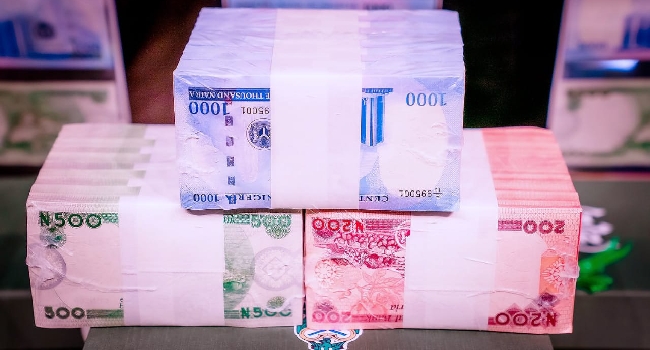Naira Watch
Naira ends year with 23.65% fall against dollar, biggest margin in history

This has been a tough year for Naira, despite Central Bank of Nigeria’s several efforts and policies to strengthen it.
On Friday, the Foreign Exchange (FX) market closed for the year 2022 with an exchange rate of N461.50 to a dollar.
This was 8.56 percent (year-on-year) depreciation against the dollar when compared to N422/$ quoted at the beginning of the year, data from FMDQ indicated.
It was even worst at the black market as the naira lost 23.65 percent (year-on-year) against the dollar.
The market ended the year with the dollar selling at the rate of N740 as against N565 at the beginning of 2022.
According to FSDH research fourth quarter macroeconomic report, naira’s poor performance was largely driven by demand for dollars for school fees payments, medical bills, tourism, importation of inputs and other goods which were high across major commercial banks.
When Nigerians could not purchase dollar from the official market they had to resort to the parallel market.
Also, the new policy on naira banknotes, created pressure on the naira across board.
Part of the report reads: “Nigeria is still challenged with limited FX inflows and high demand for foreign currency to finance imports and service payments.
READ ALSO:Naira extends fall against US dollar
“Worst still, receipts from oil are dwindling due to oil theft, and monetary tightening in advanced countries are expected to trigger capital outflows from developing countries.”
The report also noted that since the beginning of the year, investment inflow including portfolio, Foreign Direct Investment (FDI) and other investments into Nigeria have remained far below inflows recorded in 2019 before the COVID-19 pandemic.
Despite the Central Bank of Nigeria (CBN)’s Race to US$200 billion in FX repatriation (RT200 FX programme) which aims to diversify foreign exchange sources with a goal of attracting US$200 billion over the next three to five years, external reserves have trended downwards in recent times.
Nigeria’s external reserves declined by 8.42 percent year-on-year to $37.09 billion as of December 29, 2022 from $40.50 billion recorded at the beginning of the year.
One of the reasons for the external reserves decline according to a report by FBNQuest was due to the exit of foreign portfolio investors (FPIs) from Nigeria.
The research further stated that with limited inflows from exports and low foreign investment inflows arising from a tough business environment, exchange rate is expected to remain pressured in 2023.
“Efforts to improve the business environment coupled with clarity on foreign exchange policies remain vital in attracting investment into the country, boosting external reserves and ensuring exchange rate stability.”
Join the conversation
Support Ripples Nigeria, hold up solutions journalism
Balanced, fearless journalism driven by data comes at huge financial costs.
As a media platform, we hold leadership accountable and will not trade the right to press freedom and free speech for a piece of cake.
If you like what we do, and are ready to uphold solutions journalism, kindly donate to the Ripples Nigeria cause.
Your support would help to ensure that citizens and institutions continue to have free access to credible and reliable information for societal development.






















